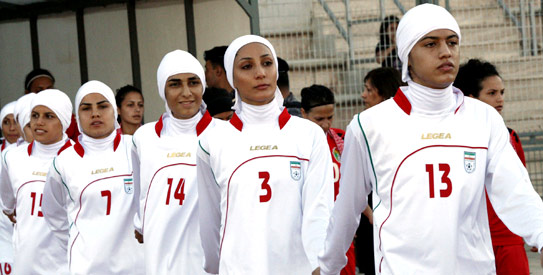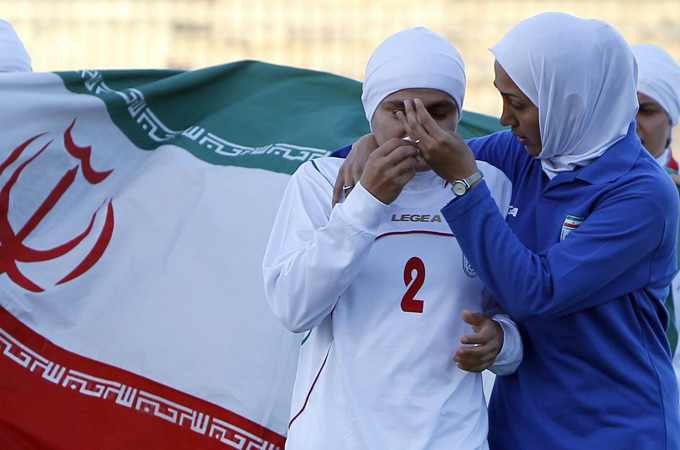By Duncan Mackay
June 7 – New FIFA vice-president Prince Ali of Jordan promised today that he will try to find a solution to the row which has seen the chances of Iran’s women’s Olympic football team competing at London 2012 because of their refusal to stop wearing their Islamic headscarf.
A FIFA official, from Bahrain, told them that they could not play in headwear in their qualifying match against Jordan in Amman last Friday (June 3) despite them having worn the same kit in the previous round.
The match was awarded 3-0 to Jordan but Iranian officials have promised that they will take the matter to FIFA President Sepp Blatter.
“This is an important issue that I will raise with the Asian Football Confederation and with FIFA,” said Prince Ali, who officially joined FIFA’s ruling Executive Board in Zurich last week.
“We will work together to find a solution that respects the rules of the game and the culture at the same time.
“Football is about fair play and respect and I am confident that we can resolve this issue.”
Iran’s Ambassador to Jordan, Mustafa Muslah Zada, claimed that the “the entire issue was politically motivated”.
He said: “FIFA should reconsider its decisions which harm Iranian players.
“If FIFA continues to impose a certain dress on women, it will lose a lot of players from Arab and Muslim countries.
“It is not a sports or football issue.
“It is a political issue.
“Politics should not be mixed with sports.
“What happened was a violation of human rights as well as international and Olympic Charters.”

A similar row involving Iran’s junior women’s team erupted before last year’s Summer Youth Olympic Games in Singapore.
Islamic guidelines require women to cover their hair in public but the laws of football requires the neck and ears to remain uncovered.
Following that row, to be in line with FIFA rules, Iran’s teams designed a special headscarf that players wrapped tightly around their heads and necks, which allowed them to participate in the Games in Singapore.
“We made the required corrections and played a match afterwards,” said Farideh Shojaei, the head of women’s affairs at Iran’s Football Federation.
“We played…and were not prevented from doing so, and they didn’t find anything wrong.
“That meant that there are no obstacles in our path, and that we could participate in the Olympics.”
Shahrzad Mozafar, who was the coach of the Iranian girls team in Singapore, claimed that this latest decision could have serious implications for the future of women’s football in the Islamic Republic.
“This ruling means that women soccer in Iran is over,” she said.
“Headscarves are simply what we wear in Iran.
“When a serious women athlete can’t participate internationally, which ambitions are left for her?”
But Prince Ali, whose siblings Prince Faisal and Princess Haya are both members of the International Olympic Committee (IOC), vowed to find a solution so that women from Islamic countries would not be discriminated against.
“I am a firm supporter of women’s football and I am keen on addressing all related issues to ensure that all girls and women can play this beautiful game across the continent,” he said.
Contact the writer of this story at zib.l1745044459labto1745044459ofdlr1745044459owedi1745044459sni@y1745044459akcam1745044459.nacn1745044459ud1745044459
Related stories
June 2011: Iran in new London 2012 row after women’s footballers banned because of dress
August 2010: Iran coach happy to talk about football rather than clothing
August 2010: Exclusive – Blatter delighted to see Iran compete at Youth Olympics following controversy
August 2010: Blatter to attend Iran girls football team opening match at Youth Olympics
May 2010: Exclusive – FIFA lift Olympic dress ban on Iranian women’s team

